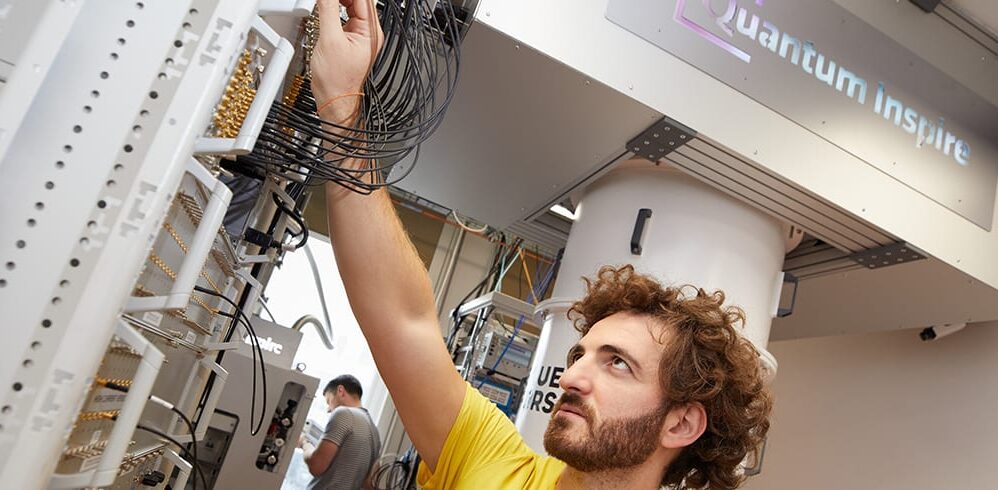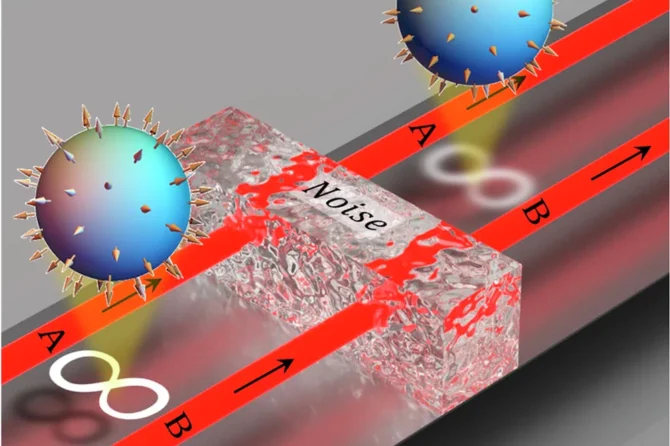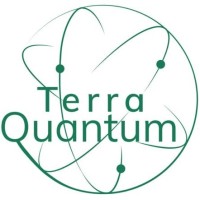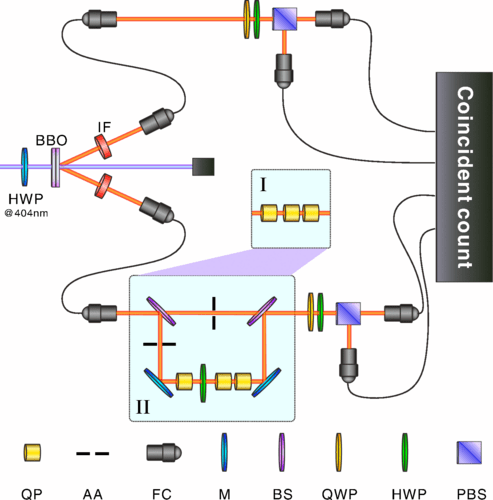The European Union has launched QLSI (Quantum Large-Scale Integration with Silicon), a four-year project coordinated by CEA-Leti to advance silicon quantum technologies. This consortium aims to position Europe as a global leader in quantum computing by demonstrating that spin qubits represent the most promising platform for large-scale quantum information processing.
The QLSI consortium combines academia, research technology organizations, major semiconductor companies, and quantum startups, each contributing specialized expertise. Members have already achieved significant advances in silicon quantum computing, with QuTech (a TU Delft and TNO collaboration) implementing quantum algorithms and offering the first open-access 2-qubit silicon-based quantum chip through Quantum Inspire.
The project will develop a 16-qubit chip and make an 8-qubit chip available via the Quantum Inspire cloud environment. Silicon’s advantages include small qubit size, high fidelity, fast read-out, and access to established semiconductor infrastructure.
Unlike classical computers using binary bits, quantum systems leverage superposition (where qubits exist in multiple states simultaneously) and entanglement (where qubits affect each other instantaneously). These properties enable revolutionary advances in computing, sensing, cryptography, and telecommunications.
Led by Maud Vinet, CEA-Leti’s quantum hardware program manager, the €15 million project has four primary objectives:
- Fabricate industry-compatible 16-qubit processors
- Demonstrate high-fidelity quantum operations
- Create a quantum computer prototype with open online access
- Document requirements for scaling to systems with over 1,000 qubits
QLSI is part of the EU’s Quantum Flagship program, a €1 billion, decade-long initiative launched in 2018 to consolidate European leadership in quantum technologies and foster innovation and investment in this strategic field.
19 QLSI members for a consortium fully dedicated to quantum hardware solution delivery
- CEA – development and fabrication of spin qubits
https://www.cea.fr & https://www.leti-cea.fr - TU Delft/QuTech – materials development and multi-qubit control
http://www.qutech.nl/ - CNRS – demonstration of spin qubits
https://neel.cnrs.fr - IMEC – significant technological developments aiming at spin qubits
https://www.imec-int.com/en/quantum-computing - TNO/QuTech – Spin qubit full stack demonstrator
https://www.tno.nl/en/focus-areas/industry/roadmaps/semiconductor-equipment/quantum-technology/ - Fraunhofer institutes IPMS & IAF – significant technological developments aiming at spin qubits
https://www.iaf.fraunhofer.de/en and www.ipms.fraunhofer.de - of Copenhagen – demonstration and characterization of spin qubits
http://www.ku.dk and http://www.qdev.dk - UCL – physics experience and charge-and-spin properties of Si nanostructures
https://www.ucl.ac.uk/quantum/
- FORSCHUNGSZENTRUM JULICH / FZJ – demonstration of spin qubits
http://www.fz-juelich.de - of Basel – physics experience and charge-and-spin properties of Si nanostructures
http://www.unibas.ch - of Twente – physics experience and charge-and-spin properties of Si nanostructures
www.utwente.nl/en & www.utwente.nl/quantum - Hitachi – physics experience and charge-and-spin properties of Si nanostructures
https://www.hitachi.eu/en-gb - of Konstanz – theoretical simulations and modelling of spin qubits and their properties
https://www.burkard.uni-konstanz.de - IHP (Leibniz-Institut) – development of Si-based quantum materials for spin qubits
https://www.ihp-microelectronics.com/en/start.html - ATOS – development of quantum validation platform
https://www.atos.net/qlm
- STMicrolectronics – development of quantum validation platform
- https://www.st.com
- Infineon Dresden – development and fabrication of spin qubits
https://www.infineon.com/cms/dresden/en
- Quantum Motion – design and validation of spin qubit devices and architectures
https://quantummotion.tech - Soitec – significant technological developments aiming at spin qubits
https://www.soitec.com/fr/
The post New EU Quantum Flagship consortium launches a project on silicon spin qubits as a platform for large-scale quantum computing appeared first on QuTech.





